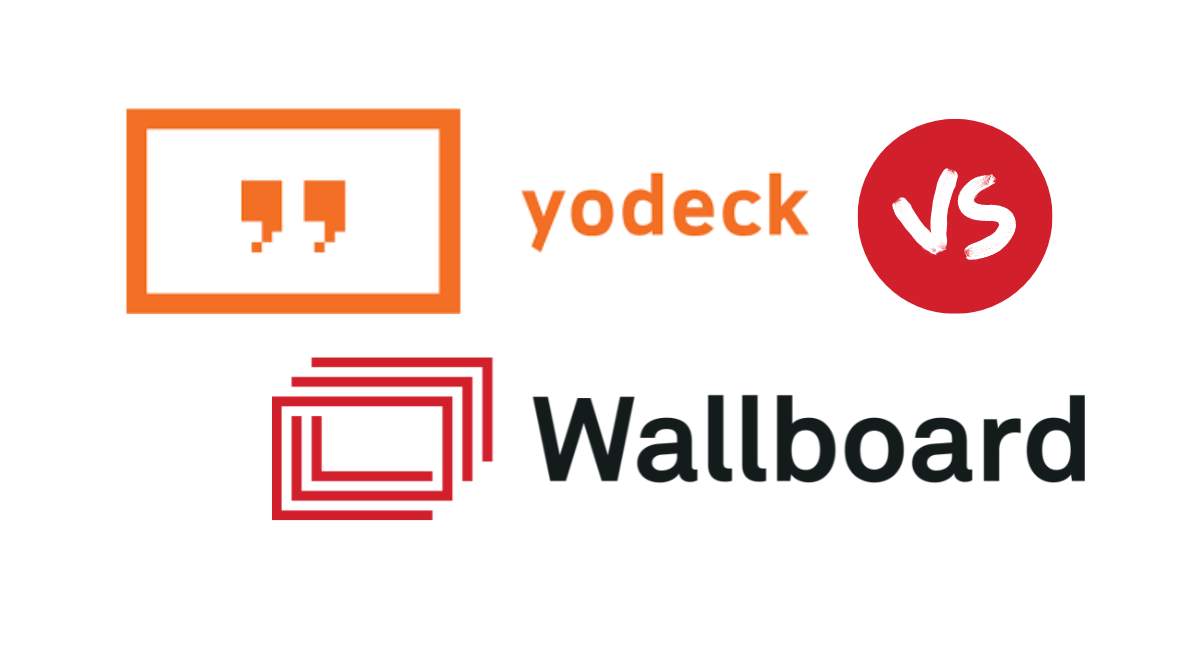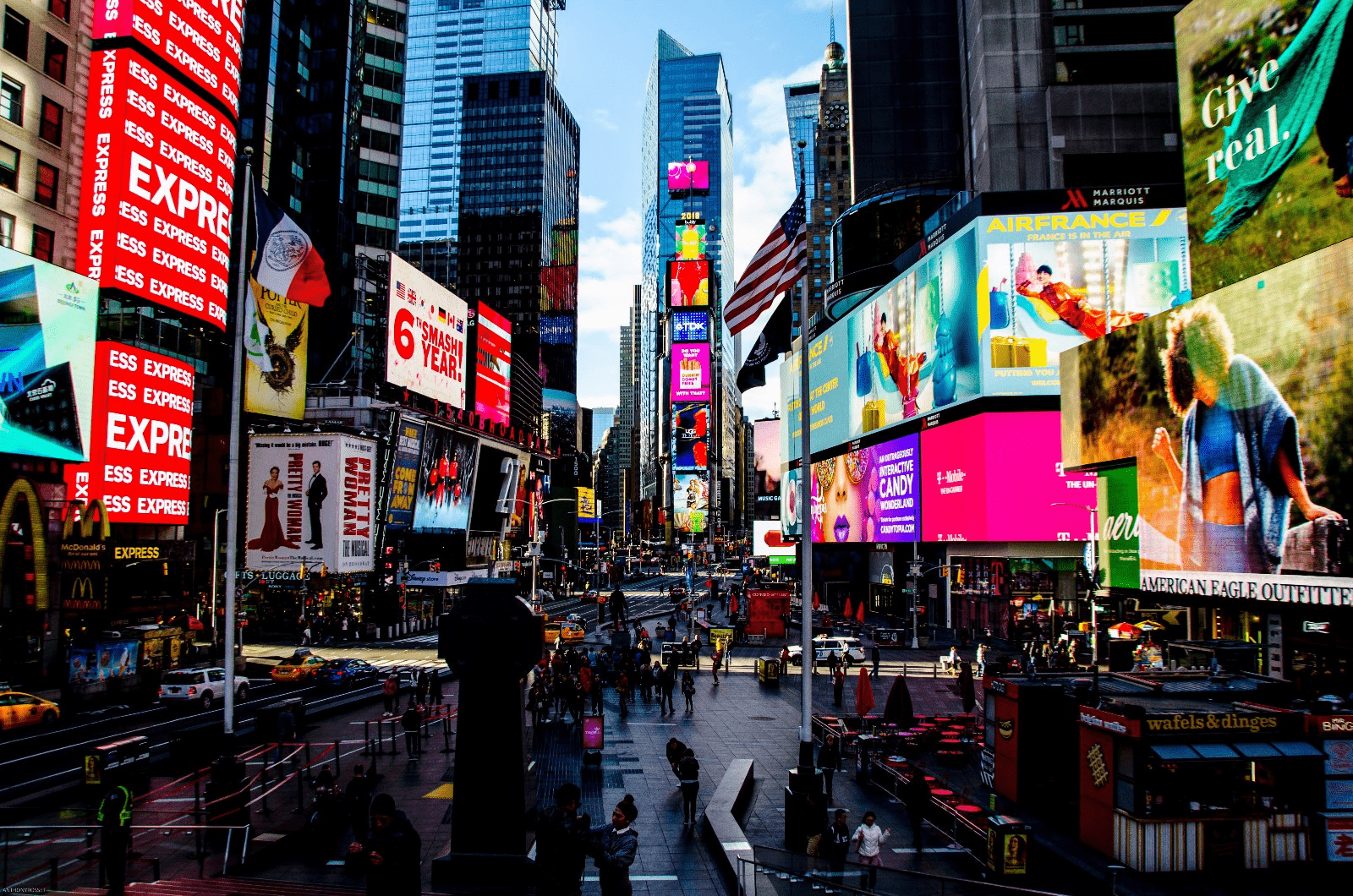.png)
Digital signage has always had advantages over traditional print media. It is cost-effective, highly customizable, and more engaging than traditional, static content. Customers who make the switch to digital signage see a much higher ROI, allowing them to apply their savings in other aspects of their business. These cost savings, coupled with the versatility of a robust digital signage platform, are the most valuable features in our constantly changing economic climate. With Wallboard, end-users can easily implement digital signage and promote constant communication through almost any screen.
Staying Flexible
The ability to meet a variety of needs is important in a quickly changing environment. The original use case for signage may become obsolete, causing businesses to rethink how their signage is utilized. Access to a platform capable of quickly meeting these changing needs has never been more important. Sadly, many digital signage platforms work simply as playback engines capable of only displaying prerendered graphics or videos. These platform limitations require businesses to opt for multiple solutions to meet different use cases. Few give end-users the ability to freely edit, yet alone, provide them with a blank canvas to create any type of content they require.
Unlimited Content Creation
Getting away from limited, zoned-off templates frees up content creators and end-users. Wallboard expands content creation to almost anything – text, videos, shapes, animated gifs, photos, wayfinding widgets, data integrations, etc. Content oriented in landscape, portrait, or custom resolutions spanning multiple screens can all be created within the same user interface all without the need for third-party software. Even interactive elements and data integrations can be added anywhere within the content with no custom coding required. Combining the ability to edit and push content from one user interface drastically cuts down on development time and cost while increasing the platform’s versatility. The end-user no longer needs to rely on different signage platforms for large display pieces, meeting room signs, check-in kiosks, interactive directories, and other use cases. Any content can be created under one versatile platform, giving the end-user unmatched flexibility.
Rethinking Digital Signage
In the past, digital signage was isolated to large screens in high-traffic areas. This made sense in a time where people congregated in large groups around offices and stores. While there will always be a need for digital content pushed to large displays, it is important to look for other areas where signage can thrive. Moving forward, businesses will need to come up with ways to get company messaging to the people that need to see it. We are beginning to see a trend toward signage focused on reaching individuals or small groups either remote or in-office. Signage broadcasted to employees’ desktops eliminates the need to walk around and congregate in small areas while ensuring everyone has a chance to see company messaging.
Many companies are getting creative in how they display their messaging and the types of hardware they are using to accomplish it. From mirrored displays located in bathrooms to printer and meeting room screens around the office, any screen can be turned into a digital signage display. Your content is only limited by the power of your device and Wallboard is designed to work on a wide range of media devices running Android, Windows, BrightSign, Samsung SSSP, or LG WebOS.
Engaging Employees and Customers in New Ways
When dealing with static signage, there is no way to cater content for individual marketing strategies. Everyone that walks by the same poster or views the same video, gets the same message regardless of who they are.
Sensor Integration
Sensor integration is on the rise and Wallboard is an early adopter of this hardware. Using cameras and sensors to track who is viewing a screen could be used to provide a more engaging experience to the customer. Just as social media uses targeted marketing campaigns, so could stores use age and gender detection with their signage to direct customers to products they might find useful.
Health and Safety Features
The AV industry is starting to see an increase in sensor integrations, not just for marketing, but for ensuring a safe shopping experience. In the wake of COVID19, sensors have been used to monitor capacities, provide wayfinding, and ensure social distancing.
- Smart Entry Kiosks – Iconic is partnering with Wallboard and Ignite Prism to bring smart entry kiosks to market. These kiosks help set customer limits, show health guidelines, and auto dispense hand sanitizer all while being run through Wallboard’s cloud-based CMS. Combining revolutionary hardware with a robust digital signage solution is a big first step in helping to keep storefronts safe.
- Touchless Technology – Advances in technology are also starting to show with touchless, interactive kiosks. These displays allow a person to interact with the screen without having to touch a surface at all.
- Wayfinding – Advances in wayfinding limit the amount of time spent in stores and outdoor ordering kiosks eliminate the need to go inside altogether. As the industry progresses and Wallboard alongside it, there will continue to be more innovations that increase audience engagement while promoting safe environments for customers. Wallboard is proud to be partnering with Mapwize to bring end-users an integrated wayfinding widget.
Wallboard’s Innovations Will Help Your Business Adapt
By adopting a flexible platform, rethinking how your digital signage is implemented, and using cutting edge technology to further engage with your audience, your business will be able to adapt to almost any situation. At Wallboard, we are committed to constantly innovating and improving our platform so that our customers have access to the most versatile digital signage solution on the market. Please contact us to learn more about how Wallboard can adapt to your needs.

.png)


